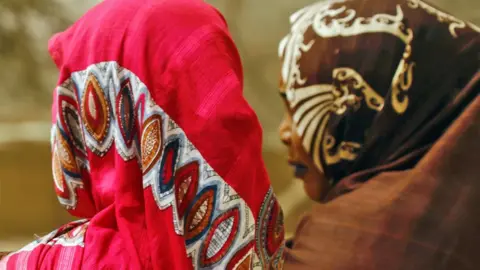In the conflict-ridden regions of Sudan, where violence and instability are rampant, camp residents have developed ingenious strategies to protect themselves from both physical attacks and psychological trauma. These camps, often home to thousands of displaced individuals, showcase resilience, resourcefulness, and community solidarity amid dire circumstances. This article explores the various methods used by residents to create a semblance of safety and security within their precarious environments.
A Network of Community Watch
One of the most significant measures employed by camp residents is the establishment of community watch groups. These groups consist of volunteers from within the camps who maintain vigilance against potential threats. Armed with basic communication tools, including mobile phones and walkie-talkies, they coordinate efforts to alert other residents to suspicious activities or imminent attacks.
According to a report by the United Nations High Commissioner for Refugees (UNHCR), these community-based systems not only enhance safety but also foster a sense of unity and purpose among residents. Such grassroots initiatives empower individuals, transforming them from passive victims into active participants in their own security.
Strategic Camp Layouts
The physical layout of the camps plays a crucial role in defense against attacks. Residents often position their shelters in a way that maximizes visibility and minimizes vulnerability. For instance, they prefer to erect their homes close to communal areas, where the population is densest, rather than on the outskirts of the camp. This strategic placement helps deter potential aggressors while enabling quicker response times from neighbors in the event of an attack.
Additionally, many camp residents have taken it upon themselves to create barriers, such as makeshift fencing and barricades made from materials readily available in their environment, such as branches, plastic sheeting, and rubble. These barriers serve as both a physical deterrent to intruders and as a psychological buffer for residents, instilling a sense of security within their communities.
Psychological Coping Mechanisms
The psychological toll of living under the constant threat of violence cannot be overstated. To combat the mental health challenges associated with this trauma, many camps have established communal support groups. These informal gatherings allow residents to share their experiences, express their fears, and find solace in collective narratives of survival.
Organizations such as Doctors Without Borders and local NGOs often implement programs that focus on mental health, teaching residents coping strategies to manage anxiety and stress. These initiatives not only provide psychological relief but also allow participants to build social networks that bolster resilience and mental fortitude.
Access to Information and Resources
Another crucial element of self-protection in Sudanese camps is access to information. Camp residents utilize community radio stations and communication networks to disseminate vital information regarding security updates, protection strategies, and emergency services. Knowledge of potential risks enables residents to make informed decisions about their safety and well-being.
Moreover, humanitarian organizations have increasingly recognized the importance of equipping residents with knowledge and resources. Training sessions focused on self-defense, first aid, and emergency response have been integrated into camp programs, empowering residents to take decisive action during crises.
The Role of Humanity
While the residents of Sudanese camps face immense challenges, their spirit and determination shine through. Their innovative approaches to safety—through community watch initiatives, strategic camp layouts, psychological support mechanisms, and access to crucial information—demonstrate an indomitable human spirit. Despite the fear and uncertainty that permeate their lives, they continue to find ways to protect themselves and each other, creating a community anchored in resilience against the odds.
In the face of adversity, the residents of Sudanese camps not only survive but also embody an inspiring example of courage, ingenuity, and solidarity, showcasing how humanity can endure, even in the darkest of times.
Email Us on editorial@nnafrica.com













